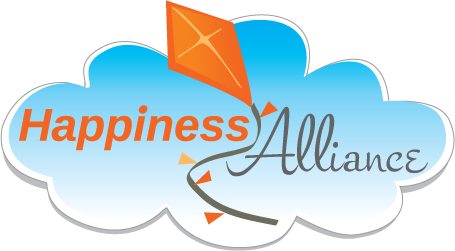What does it mean to be a human to you?

The term homo sapiens is comprised of two words. Homo has its roots in an ancient word dhghem meaning earthling. Sapiens comes from the latin verb sapere, which means to know, to be aware, to be wise.
Albert Einstein said:
A human being is a part of the whole called by us universe, a part limited in time and space. One experiences oneself, one’s thoughts and feeling as something separated from the rest, a kind of optical delusion of one’s consciousness. This delusion is a kind of prison for us, restricting us to our personal desires and to affection for a few persons nearest to us. Our task must be to free ourselves from this prison by widening our circle of compassion to embrace all living creatures and the whole of nature in its beauty.
And yet, one of the characteristics of humans is to see ourselves as separate, different and better than others, and to behave in ways that are unkind and unwise.
The Happiness Index is a comprehensive survey for well-being that includes a question for experiences of discrimination because feeling included or excluded has a big impact on your happiness. This is backed up by science (Padela & Heiser, 2009; Broman, 1997; Safi, 2010; Garstaka et al, 2004; Bjornskov et al, 2007; Mays & Cochran, 2001).
If you think about it and how it feels to be treated badly because of your gender, nationality, race, sexuality or any other aspect of you, it makes common sense that discrimination hurts in all kinds of ways.
We decided to analyze our data based on how included or excluded people feel. The question is:
How often do you feel uncomfortable or out of place in your neighborhood because of your ethnicity, culture, race, skin color, language, accent, gender, sexual orientation, or religion?
We found a strong connection between sense of discrimination and happiness in terms of satisfaction with life, feeling positive about oneself, feeling anxious, sense of health, stress about finances and work satisfaction*:
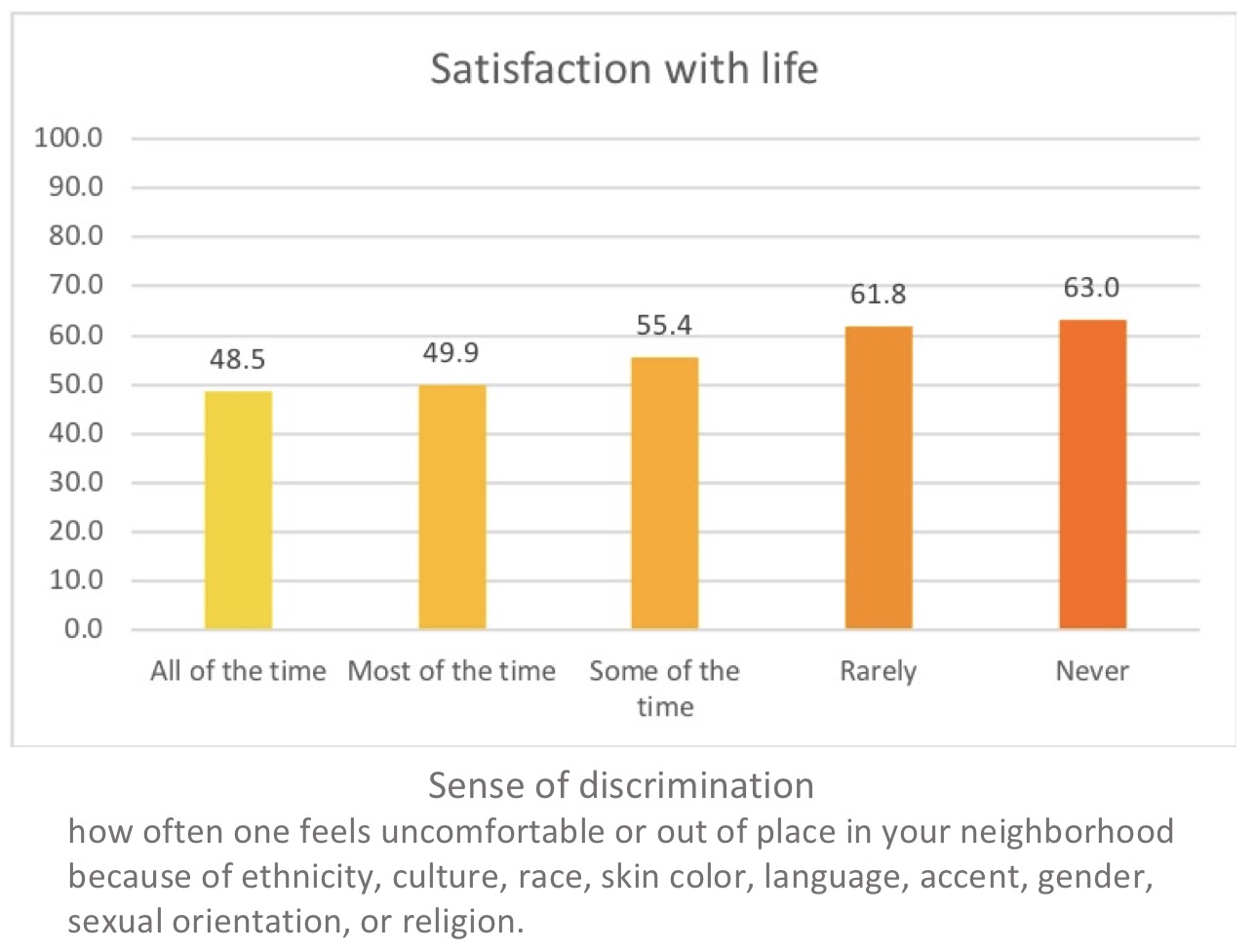
People who never or rarely feel discriminated against score higher on the satisfaction with scale.
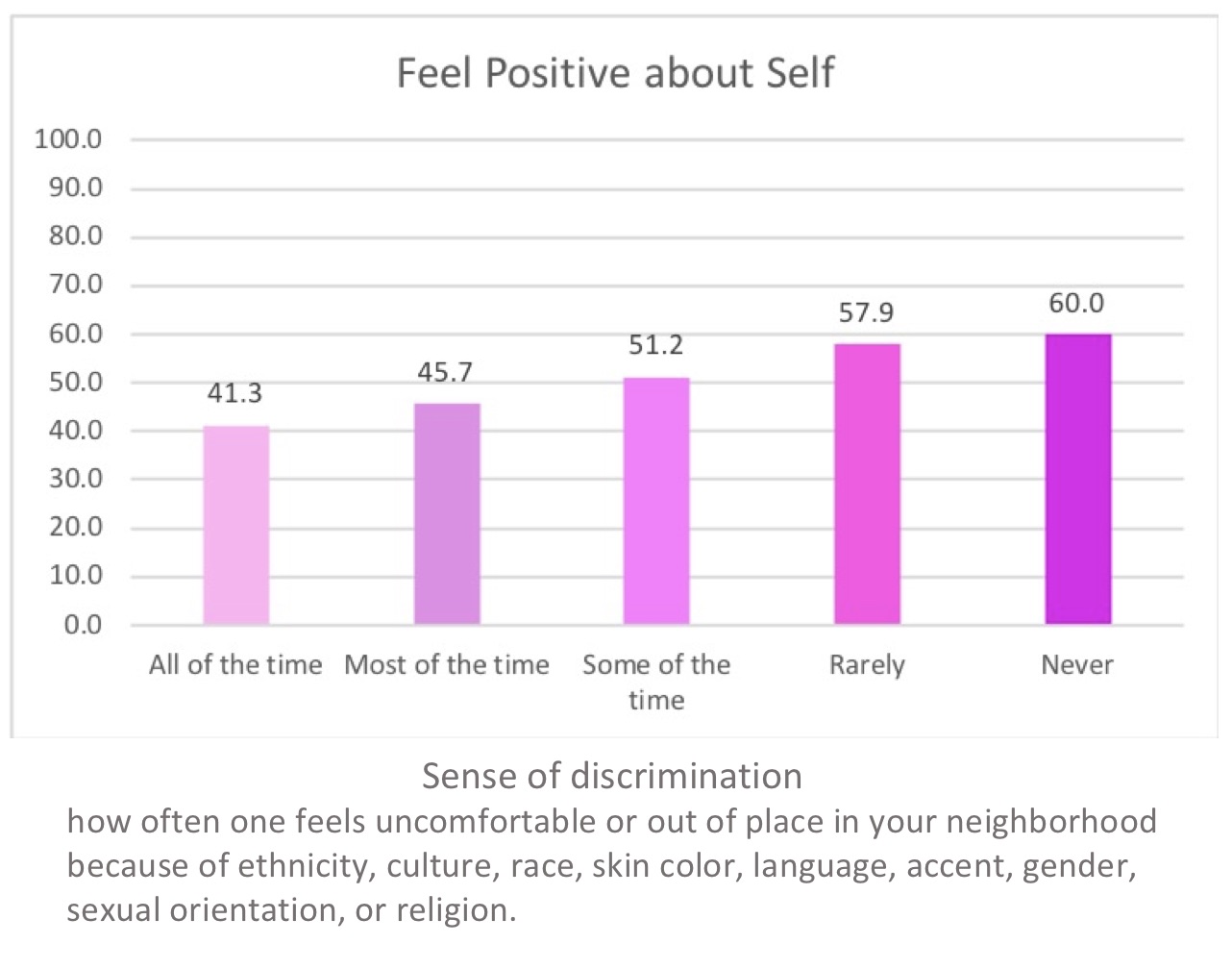
People who feel discriminated against all of the time or most of the time feel less positive about themselves than people who never or rarely feel discriminated against, by almost 20%.
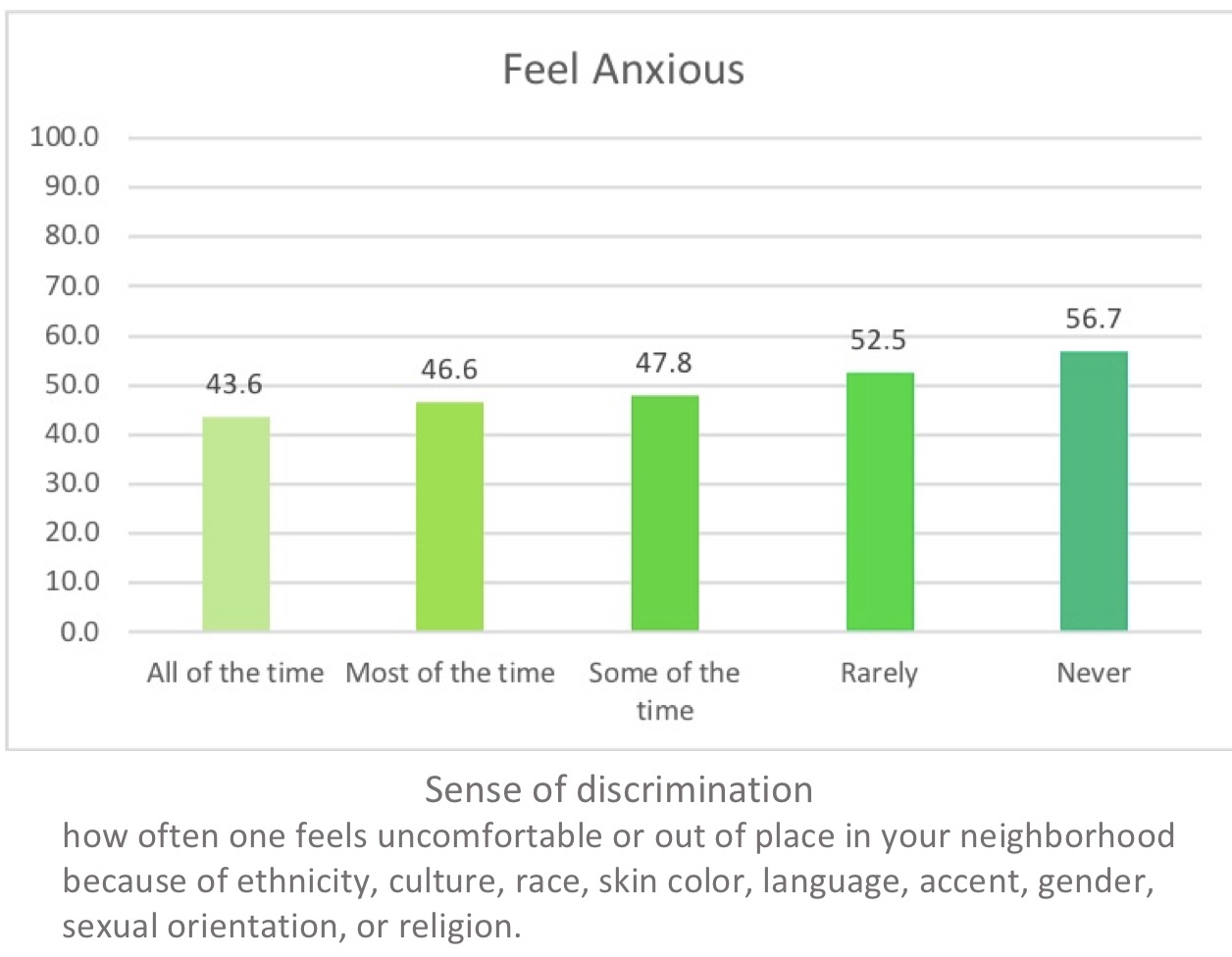
People who feel discriminated against all the time, most of the time or some of the time feel between 13.2%-8.9% more anxious than people who never feel discriminated against.
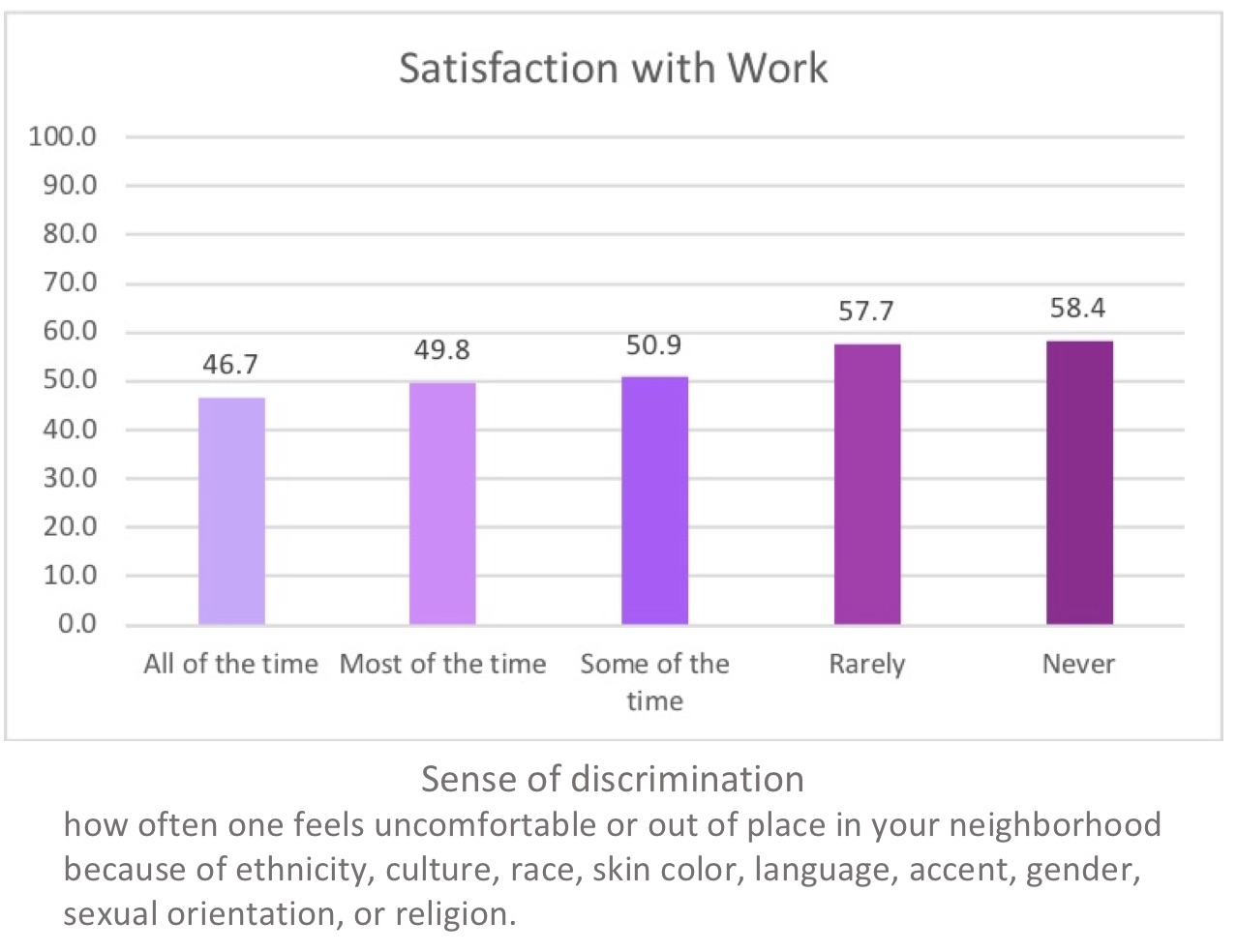
People who said they rarely or never feel discriminated against are, on average, happier in many ways that people who experience discrimination. The biggest gap is feeling positive about oneself, with an 18.7 spread on a scale of 0 -100. The average difference is 15.3 spread of six factors (sign up for our newsletters so you never miss our happiness data reports).
What does this mean?
There are a few things you can do right now to help yourself and others:
- Become aware that you are no different from any other human in your innate tendency to see others as different and better or less than because of that difference. Acknowledging this tendency is not the same as acting on it. In fact, by acknowledging it, you are less likely to act on it consciously or unconsciously.
- When you are treated badly because of your nationality, race, gender, sexuality or any other part of who you are, acknowledge how it feels inside you. Then simply state what you observe and how you are feeling, without blaming or attacking.
- When you speak badly about a group of people, such as the rich, a political party, or other group that you see as distinct and different from you, notice how it feels inside. Even if you know there is something wrong with the others, take the time to observe how your statements about them feel inside you.
Individually, you may not be able to change the entire system or change a basic feature of human nature with these actions, but a person never knows the ripple effects they have over time. If you do practice these three things, you will probably find there is greater ease in your life, and you may find that you are impacting the social environment around you – your family, your friends, your workplace, you community – in postive ways you had not expected.
We would love to hear your thoughts and feedback. Send them to [email protected]
*About the data: The data from the Happiness Index comes from a convenience sampling, meaning it represents the happiness and state of mind of the people who took it, and not necessarily the entire population. It is based on 4.356 people who took the Happiness Index in 2018.
written by Laura Musikanski, Executive Director & Clinton Bliss, MD, Board President of the Happiness Alliance

